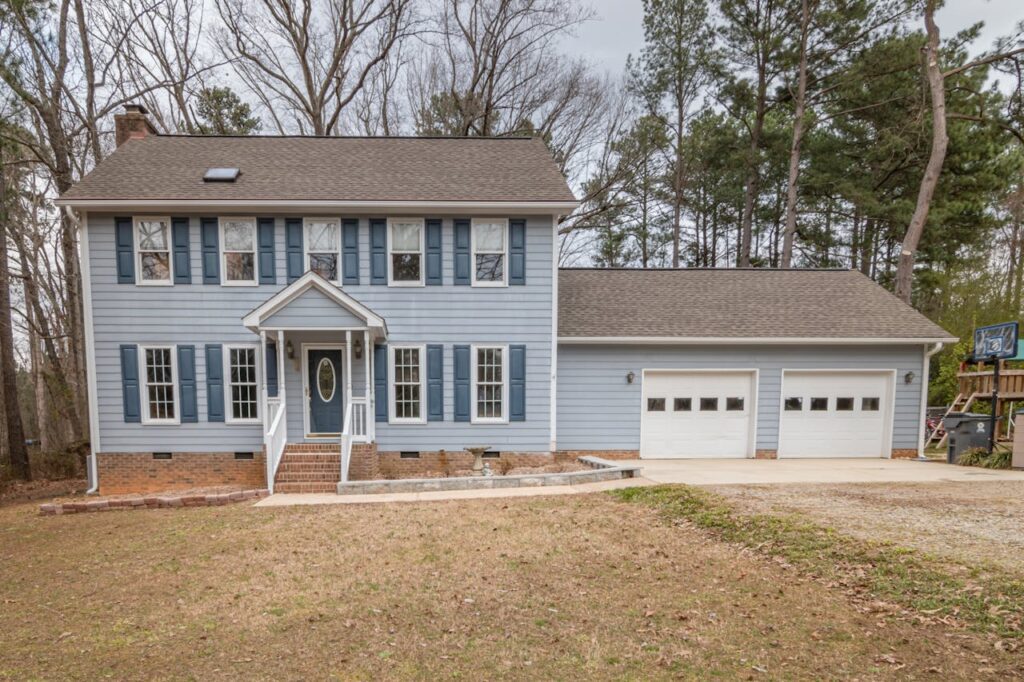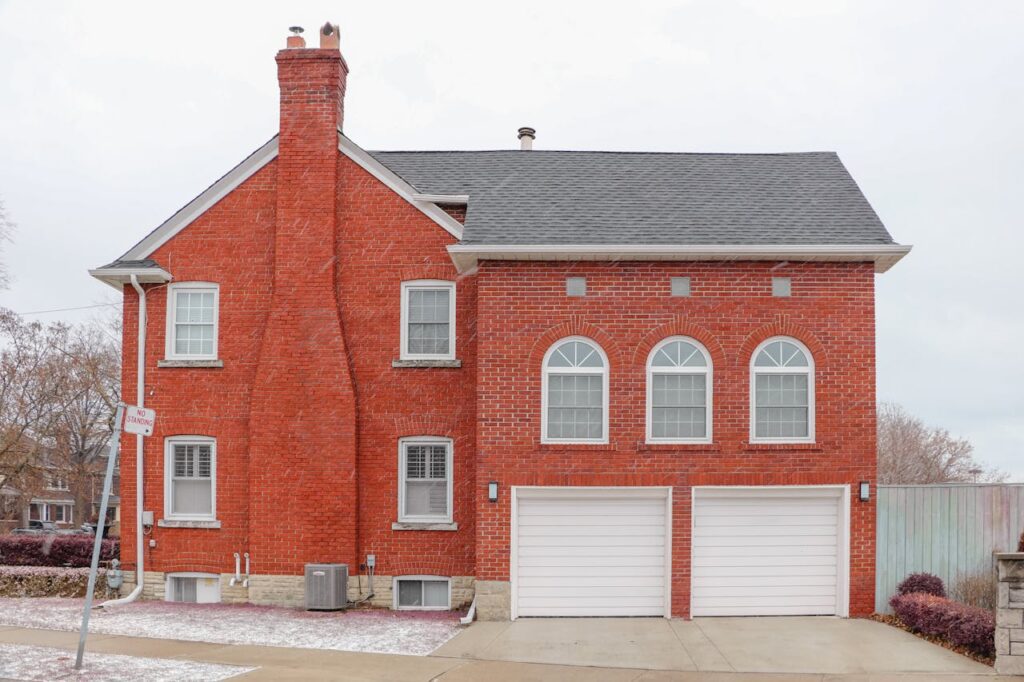In the quest for additional living space, homeowners often face the dilemma of whether to embark on a traditional home addition or explore alternative options. Among these alternatives, converting a garage into an Accessory Dwelling Unit (ADU) has emerged as a popular choice. This transformation not only adds square footage to a property but also offers a myriad of benefits that extend beyond mere spatial expansion.
In this article, we delve into the advantages of choosing a garage conversion ADU over a conventional home addition. From cost-effectiveness and quicker construction timelines to the flexibility of design and potential for rental income, we’ll explore how this innovative approach to home expansion is reshaping the way homeowners optimize their living spaces.
Whether you’re looking to accommodate a growing family, create a rental unit for supplemental income, or simply maximize the utility of existing structures, understanding the benefits of a garage conversion ADU can empower you to make informed decisions about your home improvement projects. Join us as we navigate the landscape of modern home transformations and uncover the untapped potential of converting your garage into a versatile ADU.
Understanding Garage Conversion Benefits
Garage conversion ADUs offer increased living space without expanding the footprint of your home. This cost-effective solution is ideal for growing families or individuals seeking extra room.
Converting a garage into an ADU allows for versatile usage, such as creating a rental unit, a home office, or a guest suite. The added space can enhance your lifestyle and property value significantly.
Opting for a garage conversion over a traditional addition is more budget-friendly. The existing structure reduces construction costs, making it an attractive option for homeowners on a tight budget.
With a garage conversion, you can save on expenses related to foundation work, roofing, and exterior walls. The savings can be redirected towards interior finishes or other home improvement projects.
Garage conversions typically have a faster turnaround time compared to traditional additions. Since the structural framework is already in place, the construction process is streamlined.
This means you can enjoy your new living space sooner and with minimal disruption to your daily routine. The quicker completion also translates to lower labor costs and reduced inconvenience.
Choosing a garage conversion ADU contributes to sustainable living practices by repurposing existing structures instead of constructing new ones. This eco-friendly approach helps reduce waste and minimizes the carbon footprint of your home expansion project.
Assessing Feasibility And Space Potential
When contemplating a garage conversion ADU, it’s crucial to analyze the available space meticulously. Consider the dimensions, layout, and structural integrity of the garage. Assess whether the space can be efficiently transformed into a livable area.
Converting a garage into an ADU offers versatile space utilization. You can transform it into a cozy studio apartment, an office space, or even a guest suite. The flexibility in design allows for customization based on your specific needs.
Before embarking on a garage conversion project, ensure compliance with local regulations. Check zoning laws, building codes, and permit requirements in your area. Failure to adhere to these regulations can lead to fines or legal issues down the line.
Navigating through regulatory compliance ensures a smooth transformation process. Understanding the legal aspects helps you avoid potential setbacks during the construction phase. It is essential to obtain the necessary permits before commencing any renovation work.
A critical aspect of converting a garage into an ADU is conducting a thorough structural assessment. Evaluate the foundation, walls, roof, and overall stability of the existing structure. Identifying any weaknesses early on can prevent costly repairs in the future.
Structural integrity is paramount when repurposing a garage into a livable space. Consult with a structural engineer to assess if any modifications are required to ensure safety and durability. Addressing structural concerns proactively guarantees a secure living environment.
Creating a detailed budget is essential when considering a garage conversion ADU. Factor in costs for materials, labor, permits, and unforeseen expenses that may arise during the renovation process. Setting a realistic budget helps you stay within financial constraints.
Establishing a comprehensive budget enables better financial management throughout the project. Allocate funds for design elements, insulation, plumbing, electrical work, and interior finishes. Prioritize essential aspects while keeping an eye on cost-effective solutions.
Designing For Maximum Functionality
Garage conversion ADUs offer remarkable flexibility in layout, allowing homeowners to customize the space according to their needs. This adaptability enables the creation of functional living spaces tailored to individual preferences.
One of the key benefits of choosing a garage conversion ADU over a traditional addition is the efficient use of space. By repurposing an existing structure, homeowners can maximize their property’s potential without sacrificing yard space.
Investing in a garage conversion ADU can significantly increase the overall value of a property. These additions are highly sought after in real estate due to their versatility and ability to generate rental income.
Compared to building a traditional addition, opting for a garage conversion ADU is a cost-effective solution. Homeowners can save on construction costs, as they are utilizing an existing structure rather than starting from scratch.
Garage conversion ADUs typically have shorter construction timelines compared to traditional additions. This means homeowners can enjoy their additional living space sooner and with minimal disruption to their daily lives.
Navigating Building Codes And Safety
Understanding local building codes is crucial when converting a garage into an ADU. These codes dictate the requirements for structural integrity, electrical wiring, plumbing, and more. Failure to comply can result in fines or even demolition orders.
Navigating through these regulations may seem daunting, but it ensures that your ADU is safe and up to standard. Hiring a professional contractor familiar with local codes can streamline the process and prevent costly mistakes.
Prioritizing safety measures during a garage conversion is paramount. Installing smoke detectors, carbon monoxide alarms, and fire extinguishers is essential for occupant safety. Adequate ventilation and proper insulation also contribute to a secure living environment.
Moreover, ensuring that windows meet egress requirements allows for easy escape in case of emergencies. Incorporating non-slip flooring in wet areas like bathrooms minimizes the risk of accidents.
Before finalizing the garage conversion project, it must undergo inspections by relevant authorities. Inspectors will assess various aspects such as structural stability, electrical systems, plumbing installations, and overall compliance with building codes.
Passing these inspections guarantees that your ADU meets safety standards and is legally habitable. Any deficiencies identified during inspections must be promptly addressed to obtain approval for occupancy.
Securing permits for a garage conversion ADU is a non-negotiable step in the process. Permits serve as official approval from local authorities to proceed with the construction or renovation project.
Documenting each stage of the conversion journey is essential for future reference and potential resale of the property. Keeping records of permits, inspection reports, and receipts ensures transparency and legality throughout the project.
Planning Electrical, Plumbing, And Ventilation
When converting a garage into an ADU, ensuring proper electrical wiring is crucial for safety and functionality. Hire a licensed electrician to assess the existing wiring.
Make sure to install adequate outlets in various locations throughout the ADU to accommodate appliances and electronic devices. This step is vital for convenience and usability.
Consider energy-efficient lighting options to reduce electricity consumption. LED lights are a popular choice due to their longevity and cost-effectiveness.
In a garage conversion ADU, plumbing considerations are essential for adding a kitchen or bathroom. Consult with a plumber to determine the feasibility of plumbing installation.
Ensure that the plumbing system meets local building codes for proper drainage and water supply. Addressing these requirements from the start can prevent costly issues later on.
Installing high-quality fixtures and appliances can enhance both the functionality and aesthetics of the ADU. Opt for water-saving fixtures to promote sustainability.
Proper ventilation is key in a garage conversion ADU to maintain air quality and regulate temperature. Consider installing ventilation fans in bathrooms and kitchens to reduce moisture buildup.
Incorporating windows or skylights can improve natural airflow and lighting within the space. These features not only enhance comfort but also contribute to energy efficiency.
Consult with HVAC professionals to determine the most suitable heating and cooling solutions for the ADU. Proper insulation and ventilation design can ensure optimal indoor comfort year-round.
Step-By-Step Conversion Process
Begin by assessing the existing garage space to determine its suitability for conversion. Check for structural integrity, ceiling height, and access points for utilities.
Perform a thorough inspection to identify any necessary repairs or upgrades before proceeding with the conversion process. This step ensures a smooth transition and prevents any issues down the line.
Collaborate with a designer or architect to create a layout that maximizes the available space in the garage. Consider factors like natural light, insulation, and room placement for optimal functionality.
Ensure that the design complies with local building codes and regulations to avoid any setbacks during the construction phase.
Before starting any work, secure the required permits from your local municipality. These permits are essential to ensure that the conversion meets safety standards and zoning requirements.
Failure to obtain permits can result in fines, delays, or even having to undo completed work. It’s crucial to follow legal procedures throughout the conversion process.
Once all necessary approvals are in place, begin the demolition of any existing structures in the garage. This may involve removing walls, flooring, or outdated fixtures to prepare for construction.
Hire qualified contractors or professionals to handle tasks like electrical wiring, plumbing installation, insulation, and drywalling. Quality workmanship is key to a successful garage conversion ADU.
After completing the major construction work, focus on adding finishing touches that enhance the aesthetics and functionality of the ADU. Install flooring, paint walls, add lighting fixtures, and furnish the space according to your needs.
Consider sustainable options like energy-efficient appliances and eco-friendly materials to reduce environmental impact and operating costs.
Financing Your Garage Conversion Project
Setting a clear budget is crucial for successfully financing your garage conversion project. Start by outlining all potential costs involved, including materials, labor, permits, and any unforeseen expenses.
Proper budgeting ensures you have sufficient funds to complete the project without delays or compromises on quality. Consider getting quotes from multiple contractors to compare prices and choose the most cost-effective option.
Explore different financing options to determine the best fit for your garage conversion project. From personal savings and home equity loans to construction loans and government grants, each option has its advantages and considerations.
While using personal savings avoids interest payments, it may limit your financial flexibility. On the other hand, home equity loans offer competitive interest rates but involve leveraging your property as collateral.
Consider the long-term benefits of a garage conversion in terms of return on investment (ROI). While upfront costs may seem significant, converting your garage into an ADU can significantly increase your property value and rental income potential.
A well-executed garage conversion not only enhances the livability of your home but also provides a lucrative opportunity for generating passive income through renting out the additional space.
Exploring Return On Investment
Garage conversions typically cost less than traditional additions, making them a budget-friendly option for homeowners. The savings can be significant, especially when considering factors like permits and construction materials.
Garage ADUs also offer the potential for additional rental income, providing a steady revenue stream that can help offset the initial investment. This financial benefit makes them an attractive choice for those looking to maximize their property’s value.
One of the key advantages of opting for a garage conversion ADU is the boost in property value it provides. By adding livable space to your home, you are effectively increasing its overall worth. This enhancement can be particularly advantageous if you plan to sell your property in the future.
Moreover, a well-designed and functional garage ADU can significantly enhance the appeal of your home to potential buyers. The extra living space can make your property stand out in the real estate market, attracting more interest and potentially leading to a quicker sale at a higher price.
Garage conversions offer a high level of flexibility in terms of usage. Whether you need an additional bedroom, a home office, or a rental unit, garage ADUs can be customized to suit your specific needs. This versatility allows homeowners to adapt the space according to their changing requirements over time.
Garage ADUs provide a separate living area, offering privacy and independence for occupants. This feature is particularly appealing for multigenerational families or individuals seeking rental opportunities while maintaining personal space.
Additional Considerations For ADU Success
Choosing the right location for your garage conversion ADU is crucial. Ensure it complies with local zoning laws.
Select a spot that maximizes privacy and convenience for both the main house residents and potential renters.
The design and layout of your ADU play a significant role in its success. Opt for a functional layout that makes the most out of limited space.
Consider features like ample storage, natural light, and separate entrances to enhance livability.
Obtaining the necessary permits and understanding regulations are essential steps for garage conversion ADUs. Research local building codes thoroughly before starting construction.
Ensure compliance with safety standards, fire codes, and utility connections to avoid any legal issues down the line.
Develop a detailed budget that includes all costs associated with your ADU project. Factor in construction expenses, permits, design fees, and unexpected contingencies.
Explore financing options such as loans or grants specifically tailored for garage conversion ADUs to ease financial burdens.
Maintaining your ADU is key to its longevity and value retention. Create a maintenance schedule for regular inspections, repairs, and upgrades as needed.
Invest in durable materials and energy-efficient fixtures to minimize future repair costs and increase sustainability.
Conclusion
You’ve now grasped the benefits of opting for a garage conversion ADU over a traditional addition. By understanding the feasibility, maximizing space functionality, and navigating building codes, you’re well-equipped to embark on this transformative journey. Planning for electrical, plumbing, and ventilation, following the step-by-step conversion process, and considering financial aspects will ensure a successful project.
In conclusion, take the knowledge gained here and turn it into action. Start your garage conversion ADU project today and unlock the full potential of your property while increasing its value. Your dream living space is within reach – make it a reality!
Revitalize Your Property With Garage Conversion ADUs By Red White & Blue Construction!
Considering transforming your garage into a fully functional Accessory Dwelling Unit (ADU) in Lafayette, CA? Red White & Blue Construction is your premier partner for expert pre-construction planning services tailored to garage conversions! We excel in crafting the ideal plans for your ADU projects, customizing our pre-construction approaches to perfectly match your unique needs and aspirations. Known for our expertise in pre-construction planning, we are dedicated to converting your garage into the ADU of your dreams, ensuring every aspect is carefully planned and executed to exceed your expectations. Our esteemed reputation throughout the Bay Area speaks to our commitment to precision, quality, and the high standards we uphold in every phase of planning.
At Red White & Blue Construction, our goal is to do more than just lay the groundwork; we lead you toward the successful realization of your ADU project. With our detailed planning, transparent pricing, and unparalleled customer service, starting a garage conversion ADU project with us guarantees a smooth, efficient process. Choose Red White & Blue Construction for all your pre-construction planning needs and take the first step towards transforming your garage into the ADU you’ve always wanted. Contact us today to get started!
Disclaimer
The materials available on this website are for informational and entertainment purposes only and not to provide advice. You should obtain advice concerning any particular issue or problem from a professional. You should not act or refrain from acting based on any content included in this site without seeking legal or other professional advice. The information presented on this website may not reflect the most current building developments. No action should be taken in reliance on the information on this website. We disclaim all liability concerning actions taken or not taken based on any or all of the contents of this site to the fullest extent permitted by law.





